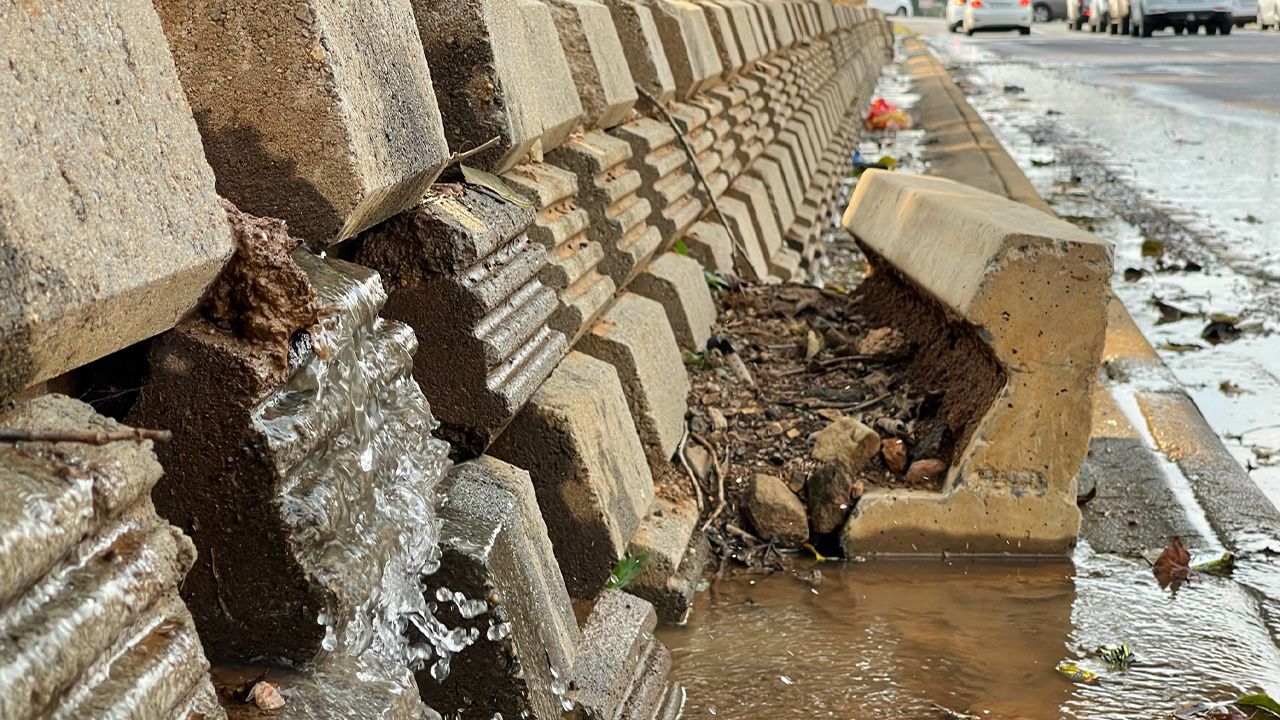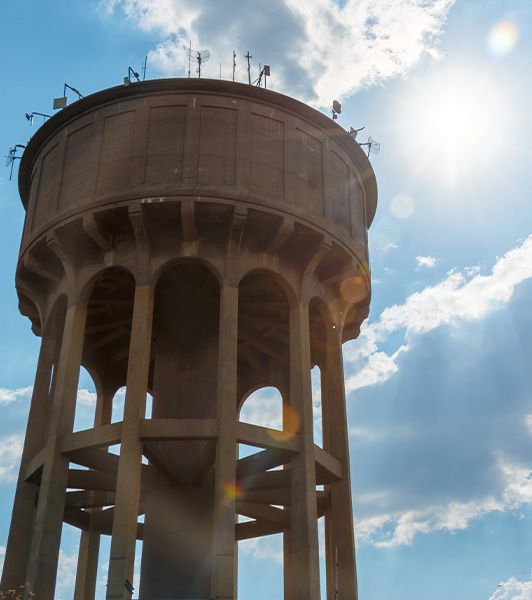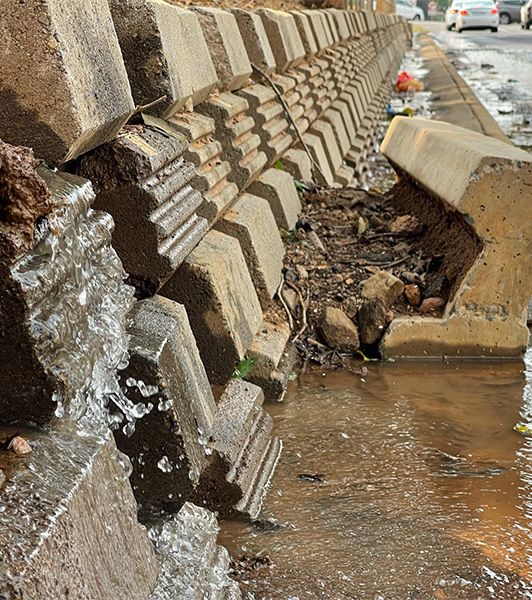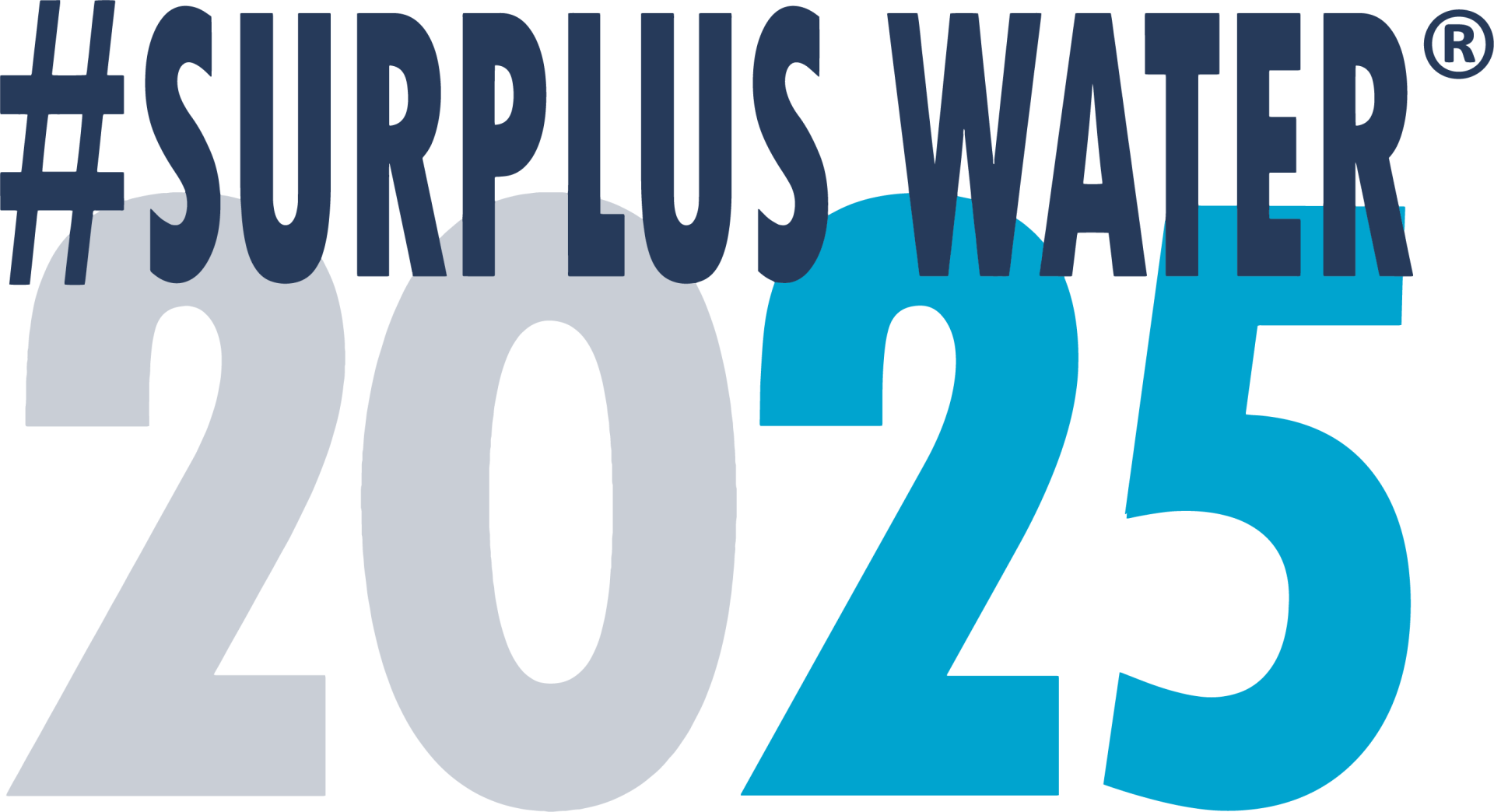A case of demand
Oct 17
/
Aldert Brink

Gauteng experienced a significant spike in water demand over the last couple of years with population growth being one of the many reasons. Rand Water's continuous struggle to supply water to Gauteng, has reached the point where residents are now required to cut water use by at least 15%, just to keep the province afloat.
The first week of October 2022 saw Gauteng implementing level 2 water restrictions, despite the Vaal Dam being almost 95% full. Rand Water’s infrastructure can not keep up with supplying reservoirs with water. Unusually high temperatures in September 2022 and very little rain, combined with overpopulation, has resulted in a 'perfect storm' for a catastrophic strain on an ageing infrastructure.
What can be done? Are there any solutions? Building more reservoirs will certainly make a difference, but it takes time and lots of planning. Using groundwater has a list of consequences that needs careful consideration as overuse and exploitation continue to contaminate our groundwater resources. Although cost effective and quite quick to set up,
harvesting rainwater is limited to location, season and space. As a matter of fact, there are countless 'solutions' on the table. Most solutions are merely measures to supplement the current water supply. Some are not sustainable or effective and many are too little too late.

The only solution that is cost effective and can be implemented with immediate effect, is reducing water demand.
A case study unfolding
A drought does not ambush you. It’s rather like sitting in a pot of water that’s gradually heated. Before you know it, the pot reaches the boiling point of day zero. So, Gauteng has water in abundance. Seemingly. For now.

Take a closer look at the water restrictions of October 2022. The Vaal Dam certainly has enough water at 95% of its capacity. With this in mind it is completely understandable why the 'sudden' commotion to put water restrictions in place, is met with so much resistance. The problem is evident and not so sudden. The infrastructure cannot keep up with the demand of a growing population's water-consumerism. Unreported and unattended leaks further contribute to millions of litres of water running down suburban tarmac rivers. And these are just the visible leaks.
Water-consumerism will literally kill us. We pay council for the service of delivering water. We are not buying water from the municipality. It is unlike me going to buy my weekly milk and 4 loaves of bread (and maybe the odd bottle of spring water).
Let’s work with the me-buying-4-loaves metaphor a little:
I always buy milk and 4 loaves of bread on Mondays, from the same place. It's a routine. I only need 3 loaves, but always buy a loaf of just-in-case bread for the dustbin, because you never know. You know? Today my grocer told me out of the blue that I should cut back on the bread, only 3 per customer daily. I’m furious. He tells me a nonsense story about delivery and supply, bla-bla-bla. The usual excuse. He lost me at ‘delivery’, anyway. At home I jump on the internet. It’s a conspiracy! The supplier has more than enough bread in stock! I’m the customer! I want my bread! Upon further research I realise the dilemma. In My-Town people always buy more bread than they need. The delivery trucks cannot keep up with the deliveries. The astonishing population growth in My-Town isn't helping and for some reason many My-Towners bought an extra loaf of ‘just-in-case’ bread in the last month. I suddenly realise that it is to everyone’s benefit if every citizen of My-Town cuts back on the bread consumption. Perhaps start to enjoy the crusts that I throw away and for all I know even put the bread that is on the verge of becoming stale in the freezer for a rainy day.
Playing a game of blame will not change the water situation in Gauteng. The immediate solution is not a matter of 'finding more water' to supply the increase in demand. It is much simpler: using only the water we need and stopping leaks. In his research published in Hydrological Heritage Overview: Cape Town (2016), Professor Matthys Dippenaar makes the observation that water supply is not solely a matter of finding water. In Gauteng (and the rest of the world), we need to lower our water demand by at least 15% instead of expecting a 15% increase in supply. This will provide the relief we need to focus on upgrading and maintaining the infrastructure.
The water restrictions in Gauteng is a golden opportunity to reassess our water behaviour, continue to raise awareness and turn this crisis into a case study on 'how to get it right'. We live in a country that does not have water in abundance. South Africa is already a water scarce country. Should Gauteng experience a drought like that of the Western Cape in 2015-2017, it would have devastating effects on the economy of South Africa.
Our current situation calls for an immediate and intentional change in mindset. This is possible by simply being water-aware and changing our water behaviour, reporting and fixing leaks, and holding each other accountable.In other words:
- Do what you can to improve your water-efficiency.
- Report leaks.
- Use only the water you need.
- Help friends, family, colleagues and neighbours to do the same.
The amount of water we have on earth is fixed; we cannot make more water or keep looking for alternative sources. If we aim to lower our demand by 20-25%, we will not merely avert another 'short term water crisis', but have surplus water we can sustainably manage and respect going forward.
Empty space, drag to resize
Do you want to learn more about Water, why it is so important to preserve every drop and how you can be part of the change?
Sign up for FREE access to the Water Matters 101 course.
Write your awesome label here.
Write your awesome label here.
Write your awesome label here.
Follow us on Facebook or Instagram for more Stories of Water and easy-to-adopt healthy water saving habits. Together we can do this!
Who we are
A community of water warriors, working together to raise water awareness, saving every drop and together, aiming for surplus water in South Africa.
Get in touch
-
South Africa, Earth :)
-
droppie@surpluswater2025.com
#SurplusWater2025 Copyright © 2025
